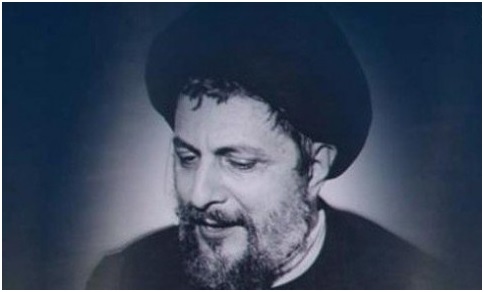
Hujjat-al-Islam Ali Zu Elm, in a meeting said that Imam Musa Sadr's role in Lebanon was a prophetic role. The Shiite community in Lebanon before the arrival of Imam Musa Sadr was dispersed, scattered and had weak cultural, economic and political life. What Imam Musa Sadr did in Lebanon was that, primarily the teachings of the Quran were raised in that country. At the same time, groups that were fighting inside our country were using Koranic verses or slogans, but at last we found out that these groups were just hypocrites.
Zu Elm insisted that because, Imam Musa Sadr was a religious scholar, his view to the teachings of the Quran and the Islamic ijtihad was one of the success factors. Challenges that Imam Musa Sadr at the same time had, was his tactical moves that was not notable with some superficiality analysis.
The member of the scientific board of the Research Center for Islamic Culture and Thought noted : "The discussion in the Qur'anic sciences is a discussion and the adaptation that the Qur'an is in fact a book that is always current and can be used for any time; this kind of engagement with the Quran was used by Imam Musa Sadr, we see clearly his approach in discussion of the issues of community based on the teachings of the Quran and explaining the issues of the day based on the Quran and Quranic verses. Unfortunately, as he was, Imam Musa Sadr as an academic commentator and expert in the interpretation of Quran is not known to us as our regional figures in this field.”
He added: “We do not have much written works from Imam Musa Sadr, but considering that Imam Musa Sadr was a student of Allamah Tabatabai, and in some of his speeches, in fact, paid attention to Allamah's commentary school, so we can say that the school he has followed has been the same conceptual framework.”
Zu Elm stressed that scientific environment, social, political and family environment of Imam Musa Sadr was in a way that from the beginning, he was very familiar with the Quran, so, it was one of his major concerns on arrival in Lebanon, to strengthen education, science and knowledge in children, adolescents and young Shias and establishment of schools and defining the Islamic educational system. Now if we study the educational system under the Shiite system that Imam Musa Sadr designed for children, it may be a clear chapter to get more familiar with his ways.”
Zu Elm explained that the meaning of thinking like Quran is that the human works with his mind, which means the thought and action and the decision to be an internal decision; if one can have the same view and look at the world and people of God as Quran has, then we can say that person is thinking Quranic. As Imam Ali (as) said that we must solve our problems by referring to the Holy Qur'an and see what answers Quran can give us, just the same way that Imam Musa was going. Imam Musa Sadr was the founder of the New Shiite Society in Lebanon.
Zu Elm said that Sometimes we just look at the issue of ijtihad just as limited as in Fiqh matters, which is not a good look, while we have to look at ijtihad in a social, political and macro-management of society, its example is the movement of Imam Musa Sadr, Imam Khomeini (Ra) and its instance is the same efforts that today the Supreme Leader ( Khamanei) is having in our society.
He added that more important than anything else is to see the reflection of the Quran in Imam Musa Sadr on the new training regime he designed for the Lebanese Shiite community; a kind of symbiosis with the power of thought of Shi'ism is a positive outlook that can inspire us today. Tact, integrity, intelligence, being man of action and ability to manage and organize are very important that Imam Musa Sadr had them all, so he was able to make a great community from a dispersed one in Lebanon. If he was not an educated person and was not using religious sources and could not speak as a jurisprudential position, certainly he could have not had services that he made for Lebanon society.
Zu Elm also added that although due to some reasons, he was not apparently a revolution figure against the Lebanon regime, but he had communication with all the leaders of the revolution in Iran, like Martyr Chamran who was trained by Imam Musa Sadr who became a revolutionary figure in the Islamic Revolution of Iran.

Add new comment